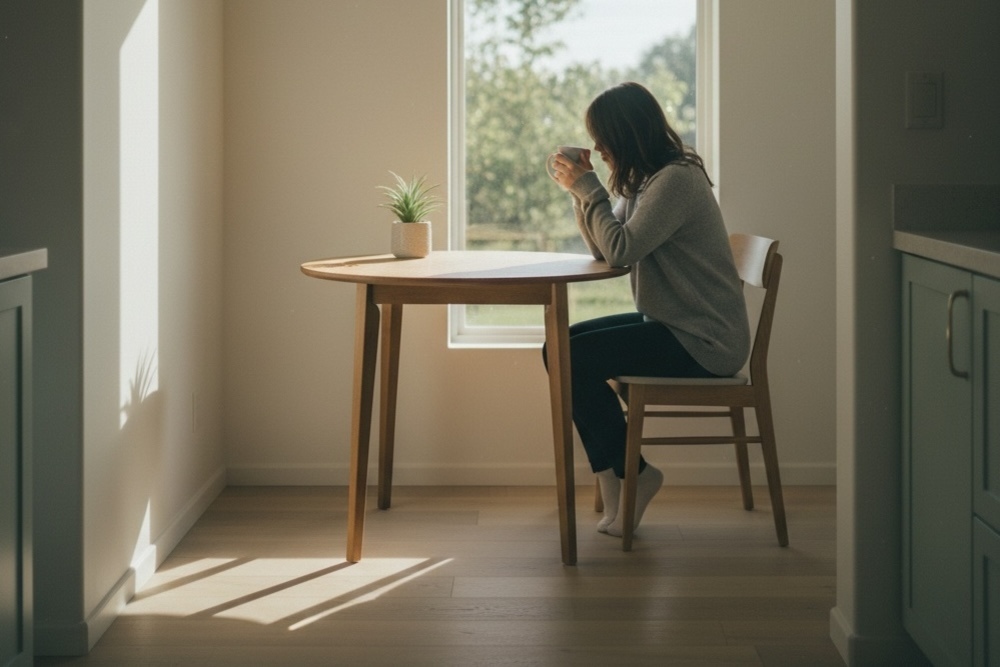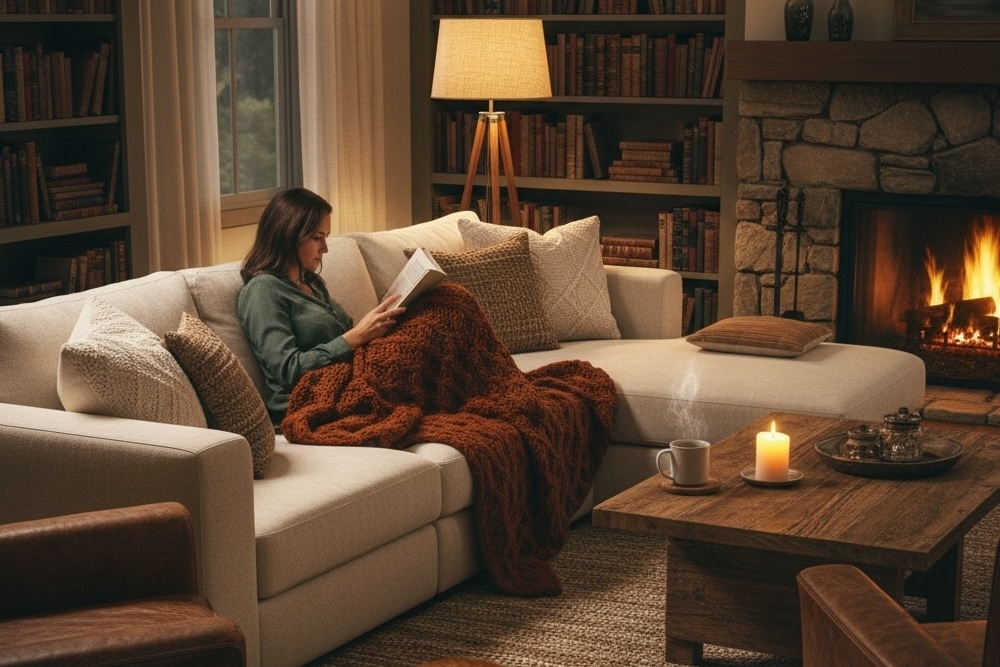The Benefits of Slowing Down: How to Embrace a Simpler Lifestyle
Caleb Martin
2025-08-24
6 min read

In a world that celebrates speed, productivity, and constant achievement, the idea of slowing down can feel almost revolutionary. We live in an era where busyness has become a badge of honor, where packed schedules are worn like status symbols, and where the pressure to do more, faster, seems to intensify with each passing year. Yet beneath this cultural obsession with speed lies a growing recognition that our relentless pace may be costing us far more than we realize. The movement toward slower, simpler living isn't about rejecting progress or abandoning ambition. Instead, it represents a conscious choice to prioritize quality over quantity, depth over breadth, and well-being over mere productivity. This shift offers profound benefits that extend far beyond stress reduction, touching every aspect of our physical, mental, and emotional health.
The Mental Health Revolution of Slowing Down
Research consistently demonstrates that chronic rushing and overstimulation create significant mental health challenges. When we constantly operate in high-speed mode, our brains remain in a state of heightened alertness that was designed for genuine emergencies, not daily life. This chronic activation of our stress response systems can lead to anxiety, depression, and cognitive fatigue that makes even simple decisions feel overwhelming. Slowing down allows our minds to shift from reactive to reflective mode. When we create space between stimulus and response, we gain access to higher-level thinking that enables better decision-making, creative problem-solving, and emotional regulation. Studies in neuroscience show that practices associated with slower living, such as meditation and mindful breathing, actually change brain structure over time, strengthening areas associated with attention, emotional regulation, and self-awareness. The concept of "cognitive load" helps explain why slower living feels so mentally refreshing. Our brains can only process a limited amount of information simultaneously, and modern life consistently pushes us beyond this capacity. By intentionally reducing the number of decisions, tasks, and stimuli we encounter daily, we free up mental resources for deeper thinking, creativity, and genuine presence with the people and activities that matter most.
Physical Health Benefits of a Gentler Pace
The physical toll of constant rushing manifests in ways both obvious and subtle. Chronic stress hormones like cortisol, released during our perpetual hurry, contribute to inflammation, weakened immune function, digestive issues, and cardiovascular problems. When we slow down, we give our bodies the opportunity to activate the parasympathetic nervous system, often called the "rest and digest" response, which promotes healing, repair, and optimal organ function. Sleep quality improves dramatically when we embrace slower rhythms. The practice of winding down gradually in the evening, rather than rushing from activity to activity until bedtime, helps regulate our circadian rhythms and promotes deeper, more restorative sleep. Research shows that people who maintain consistent, slower-paced evening routines report better sleep quality and wake feeling more refreshed.
Physical activities become more enjoyable and sustainable when approached with a slower mindset. Walking instead of running, gentle yoga instead of high-intensity workouts, and cooking meals from scratch instead of grabbing fast food all contribute to better physical health while reducing the stress associated with constant time pressure.

Practical Strategies for Embracing Slowness
Transitioning to a slower lifestyle doesn't require dramatic life changes or abandoning responsibilities. Instead, it involves making small, intentional adjustments that create more space for presence and reflection. The key lies in identifying areas where speed serves no meaningful purpose and consciously choosing to slow down in those moments.
Morning routines offer an excellent starting point for practicing slowness. Instead of checking phones immediately upon waking or rushing through breakfast, creating a gentle morning ritual signals to both body and mind that the day can begin with calm intention rather than frantic urgency. This might involve brewing coffee slowly, eating breakfast without distractions, or spending a few minutes in quiet reflection. Mindful eating represents another powerful entry point into slower living. When we eat quickly while multitasking, we miss both the physical satisfaction of our food and the social connections that meals can provide. Eating slowly, paying attention to flavors and textures, and engaging in conversation during meals transforms necessary nutrition into nourishing experiences that support both physical and emotional well-being. The practice of single-tasking, while challenging in our multitasking culture, offers immediate benefits for both effectiveness and stress reduction. Research consistently shows that attempting to do multiple things simultaneously actually decreases productivity while increasing stress hormones. By focusing fully on one task at a time, we often complete activities more efficiently while experiencing greater satisfaction and less mental fatigue.
Simplifying Physical and Digital Environments
Our physical environments significantly impact our ability to embrace slower living. Cluttered, chaotic spaces create mental noise that makes relaxation and focus more difficult. The process of decluttering isn't just about organizing possessions; it's about creating environments that support calm, intentional living. The principle of "less but better" applies to both possessions and commitments. When we own fewer things but choose items that truly serve our needs and bring us joy, we reduce the mental energy required to maintain our living spaces. Similarly, when we commit to fewer activities but choose those that align with our values and interests, we can engage more fully and experience greater satisfaction.
Digital decluttering has become increasingly important as technology often accelerates rather than simplifies our lives. Setting boundaries around email, social media, and news consumption creates space for real-world experiences and face-to-face relationships. The constant influx of information and requests for attention that digital devices provide can make slowing down feel impossible unless we actively manage our digital environments.
Cultivating Deeper Relationships and Meaningful Experiences
Perhaps the greatest benefit of slowing down lies in its impact on our relationships and our capacity for meaningful experiences. When we're constantly rushing, we often interact with others in superficial ways, missing opportunities for genuine connection and mutual support. Slower living creates space for the kind of presence that allows relationships to deepen and flourish. Conversations become richer when we're not mentally planning our next activity or checking our phones during interactions. Listening deeply, asking thoughtful questions, and giving others our full attention strengthens relationships while reducing the loneliness that often accompanies busy lifestyles. The practice of savoring, extensively studied in positive psychology, becomes possible when we slow down enough to notice and appreciate positive experiences. Whether it's enjoying a sunset, appreciating a good meal, or celebrating a small accomplishment, the ability to fully experience positive moments significantly increases life satisfaction and emotional well-being. Embracing a simpler, slower lifestyle isn't about opting out of modern life or abandoning achievement. Instead, it's about making conscious choices that prioritize well-being, meaningful relationships, and genuine satisfaction over the illusion of productivity that comes from constant busyness. In a world that profits from our hurry and distraction, choosing to slow down becomes an act of wisdom that benefits not just ourselves, but everyone whose lives we touch along the way.



